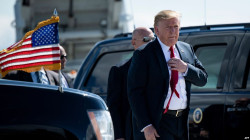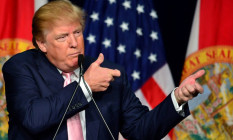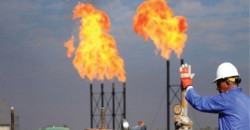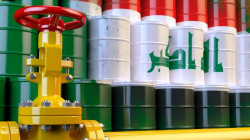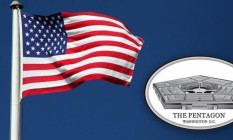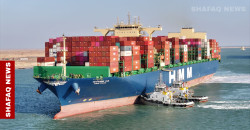Iraq faces uncertainty as Trump’s return spurs new diplomatic and economic challenges
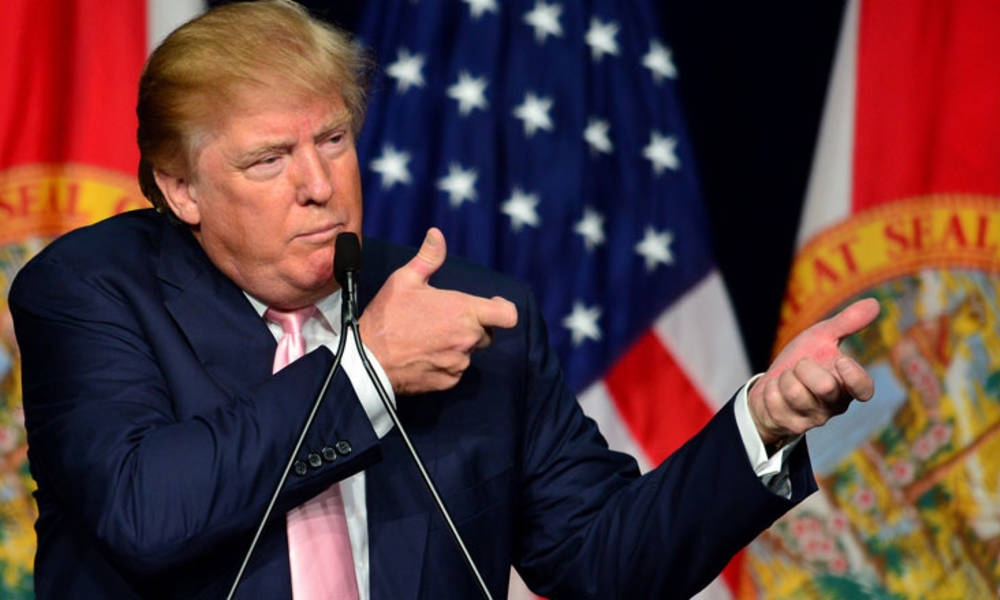
Shafaq News/ As Donald Trump secures a second term in the White House, Iraq faces a delicate balancing act in its relations with the United States. Despite his controversial role in the 2020 airstrike that killed Iranian general Qassem Soleimani and Iraqi PMF leader Abu Mahdi al-Muhandis, top Iraqi officials have expressed their commitment to strengthening bilateral ties.
Experts warn that Trump's assertive foreign policy could intensify Iraq's internal and regional challenges, particularly about US military presence, economic sanctions, and Iran's influence in the region.
Official Congratulations
Iraqi Prime Minister Mohammed Shia al-Sudani congratulated US President-elect Trump, Vice President-elect James David Vance, and the American people on the successful election process.
In a post on X, al-Sudani affirmed Iraq’s “steadfast commitment to strengthening bilateral relations with the United States, grounded in mutual respect and shared interests.” He added that Iraq hopes this new phase will lead to deeper cooperation between the two nations across various sectors, promoting sustainable development and benefiting both peoples.
Iraqi President Abdul Latif Jamal Rashid also extended his congratulations on X, wishing Trump and his administration success in leading the U.S. toward further progress and prosperity. “The new American administration will foster much-needed stability and constructive dialogue in the region.”
In the Kurdistan Region, President Nechirvan Barzani offered his warm congratulations to President-elect Trump and Vice President-elect Vance, voicing optimism about strengthening partnerships and enhancing the Kurdistan Region’s relations with Iraq and the United States.
"I extend my warmest congratulations to President Donald Trump and Vice President-Elect JD Vance on their election victory." He added, " I look forward to working together to further strengthen our partnership and deepen the bilateral ties between the Kurdistan Region, Iraq, and the United States."
Kurdish Prime Minister Masrour Barzani also congratulated Trump, expressing eagerness to deepen cooperation with the US and work together to promote peace and stability in the region.
Legal Actions Against Trump
On January 7, 2021, the Al-Rusafa Investigation Court in Baghdad issued an arrest warrant for then-US President Donald Trump. The warrant was part of an Iraqi investigation into the US airstrike that killed Qassem Soleimani, the commander of Iran's Quds Force—a branch of the Islamic Revolutionary Guard Corps (IRGC)—and Abu Mahdi al-Muhandis, Chief of Staff of Iraq’s Popular Mobilization Forces (PMF). The two leaders were targeted in a strike near Baghdad International Airport.
The warrant was issued under Article 406 of the Iraqi Penal Code, which pertains to premeditated murder.
Iraq’s Supreme Judicial Council President Faiq Zidan highlighted Iraq’s position on the matter, stating, “We issued an arrest warrant for Trump and will not hesitate to take legal measures.”
As diplomatic relations evolved, both Iraq and the US faced challenges balancing legal actions with broader strategic interests.
Trump's Expected Policies and Impact on Iraq
Political analyst Abbas Al-Jubouri discussed the potential policies of Trump and his approach toward Iraq. Al-Jubouri stated to Shafaq News, "Trump has clear goals he will work toward, and while American foreign policy tends to remain stable, presidents usually have a degree of flexibility in their actions."
He described him as a "dictatorial president," explaining that Trump tends to bypass certain institutions and overstep many powers. Al-Jubouri added, "His victory is not in Iraq's favor at all."
The analyst predicted that Trump would likely seek to maintain, and possibly increase, the presence of US forces in Iraq, expecting him to impose sanctions on those who attempt to influence the war in Gaza and to continue sanctions against Iran.
Al-Jubouri concluded by recalling Trump's past comment, "There is no Iraq, only oil," emphasizing that under such a commercial approach, Iraq must prepare a comprehensive team of experts to confront Trump's new Middle East and Iraq policy.
Internal and External Efforts
Political analyst Mujashaa al-Tamimi pointed out that Iraqis have high expectations from President-elect Donald Trump regarding both internal and external political matters.
On the domestic front, al-Tamimi explained that “Iraq needs strong US support for its government and efforts to foster dialogue between Iraq's various political groups” Pointing out the Strategic Framework Agreement between Iraq and the US, particularly in civil sectors, as a key avenue for strengthening Iraq's economy.
“Iraq hopes for increased US investment, with American investors playing a more active role in the country’s economic development.”
Regarding foreign policy, al-Tamimi noted that Iraq is facing a severe drought crisis and expected Washington to exert pressure on upstream countries to release more water to Iraq, ensuring it receives its full water share.
“Iraq is looking for US support in preventing regional countries from intervening in Iraq’s political affairs. As a strategic ally, the US is expected to uphold its commitments to Iraq, which played a pivotal role in establishing the current political system following the fall of Saddam Hussein.” He added.
Impact of Trump's Victory on Iraq's Economy
Economist Dr. Mustafa Farraj warned that Trump’s victory could have several implications for Iraq’s economy, particularly concerning oil prices, sanctions on Iran, and foreign investments.
Farraj explained to Shafaq News that global oil prices could be affected by Trump’s policies, either rising or falling, which would have a direct impact on Iraq.
Regarding sanctions on Iran, Farraj noted, “Trump is known for his tough stance on Iran and may impose even harsher sanctions, which would negatively affect Iraq's trade relations with Iran, especially in the importation of gas for energy use.”
On foreign investments, Farraj indicated that Trump’s economic and trade policies could influence the flow of foreign investments into Iraq, “potentially destabilizing the Iraqi market if US policies toward the Middle East shift.”
“The overall impact will depend on global and regional policy changes and Iraq's ability to adapt and capitalize on emerging opportunities.”
Economic researcher Ahmed Eid pointed out that US foreign policy generally follows the same principles and objectives, but the approach differs in practice, particularly regarding Iraq.
Eid explained, “Republican handling of Iran contrasts with the Democratic approach, with Republicans being less flexible, especially when dealing with Iran’s influence in the region, including through its proxy militias.”
“Republicans view Iran’s intervention in Iraq as a threat to their interests, with Trump seeing Iraq as both a strategic and economic asset for US policy. This shift places Iraq at the center of American focus in the Middle East.” Eid told Shafaq News.
Economically, Eid noted that US foreign policy would aim to limit Iran’s economic expansion, which could increase pressure on Iraq regarding its oil exports and gas investments. Additionally, “US measures might target the flow of Iranian gas revenue into Iraq, potentially limiting economic cooperation between the two countries.”
Eid further explained that the US would likely use the Treasury Department and the Federal Reserve to tighten oversight of Iraqi finances, monitoring transfers to prevent funds from reaching Iranian-backed entities or sanctioned groups.
Furthermore, he predicted a strong likelihood of new sanctions on Iraqi banks and influential entities, “especially if the Central Bank of Iraq fails to manage risks associated with financial transfers.”
“Trump’s policy would aim to undermine Iranian interests that threaten US priorities, potentially leading to further targeting of militias and factions in Iraq allied with Iran. This, in turn, could escalate security risks that directly affect Iraq's economic landscape.”
Security and Trump's Approach
Security expert Ali Al-Askari emphasized that Trump’s primary focus is the US economy, and in order to fulfill this objective, he must ensure the security and stability of Iraq and the Gulf region.
Al-Askari explained, “Iraq’s economy is heavily reliant on oil exports, which are closely linked to the overall recovery of the US economy. Therefore, the US-Iraq security agreement must remain in effect to ensure mutual stability.”
Regarding the “militias,” Al-Askari noted that they will continue their "hit-and-run" tactics against US forces. However, “the US knows how to handle these groups to maintain the stability of oil exports, which takes priority over Iraq's broader security concerns.”
Al-Askari also highlighted that the US remains cautious about Iran’s influence in the region, further complicating the security dynamics.
No Major Changes Expected
Military expert Munthir Dagher believed that, contrary to the expectations of many, there will be no significant changes following Trump’s victory, or at least not to the extent some anticipate. “Trump is unpredictable, often willing to make drastic policy shifts to secure what he sees as beneficial for the US, even if it means changing course abruptly.”
However, Dagher argued, “in the near future, no major changes are expected as the transition period is underway and will continue into the spring of the following year…Trump has learned from his previous term and is not the same as he was during his first presidency.”
